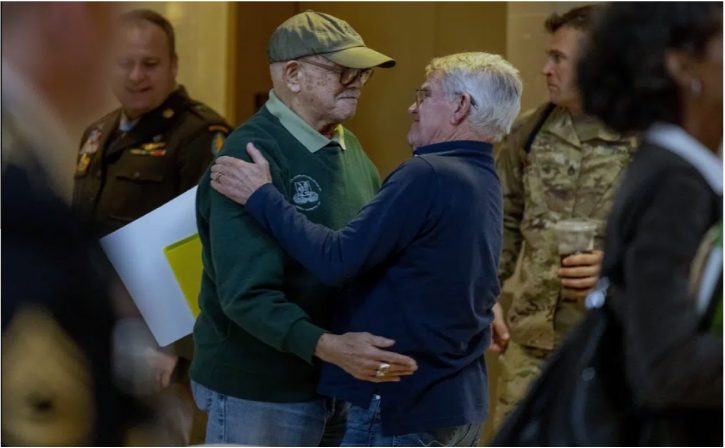
Retired Col. Paris Davis, who served in the Vietnam War, will finally receive the Medal of Honor, the nation’s highest award for bravery, on Friday. Nearly 60 years after being recommended for the award, Davis will receive it at a White House ceremony, with President Joe Biden presenting him the blue ribbon.
Davis was one of the first Black officers to lead a Special Forces team in combat, and he risked his life to save some of his men by fighting off the North Vietnamese. He engaged in nearly continuous combat during a pre-dawn raid on a North Vietnamese army camp in the village of Bong Son in Binh Dinh province in mid-June 1965. He led the charge against the enemy, called for precision artillery fire, engaged in hand-to-hand combat with the North Vietnamese, and thwarted the capture of three American soldiers. All while suffering multiple wounds from gunshots and grenade fragments. Davis used his pinkie finger to fire his rifle after his hand was shattered by an enemy grenade.
Davis repeatedly sprinted into an open rice paddy to rescue each member of his team. His entire team survived, and Davis refused to leave the battlefield until his men were safely removed. His commanding officer recommended him for the Medal of Honor, but the paperwork disappeared.
Davis eventually received the Silver Star Medal, the military’s third-highest combat medal, as an interim honor, but members of Davis’ team have argued that his skin color was a factor in the disappearance of his Medal of Honor recommendation. Davis’ supporters believe racism was to blame, but Davis himself doesn’t dwell on it. He said he doesn’t know why it has taken decades for his heroism to be recognized.
“It’s just the antithesis of that,” Davis said. “It heightens the thing if you’ve got to wait that long. It’s like someone promised you an ice cream cone. You know what it looks like, what it smells like. You just haven’t licked it.”
Ron Deis, a junior member of Davis’ team in Bong Son, helped compile the recommendation that was submitted in 2016. He said he knew Davis had been recommended for the Medal of Honor shortly after the battle in 1965 and he spent years wondering why Davis hadn’t been awarded the medal. Nine years ago, he learned that a second nomination had been submitted “and that also was somehow, quote, lost.”
“But I don’t believe they were lost,” Deis said. “I believe they were intentionally discarded. They were discarded because he was Black, and that’s the only conclusion that I can come to.”
Army officials say there is no evidence of racism in Davis’ case. “We’re here to celebrate the fact that he got the award, long time coming,” said Maj. Gen. Patrick Roberson, deputy commanding general, U.S. Army Special Operations Command. “We, the Army, you know, we haven’t been able to see anything that would say, ‘Hey, this is racism.’ We can’t know that.”
In early 2021, Christopher Miller, then the acting defense secretary, ordered an expedited review of Davis’ case. He argued in an opinion column later that year that awarding Davis the Medal of Honor would address an injustice.
“Some issues in our nation rise above partisanship,” Miller wrote. “The Davis case meets that standard.”
Davis’ daughter, Regan Davis Hopper, a mom of two teenage sons, said she only learned of her dad’s heroism in 2019. But, like him, she said she tries not to dwell on her disappointment in how the situation was handled.
